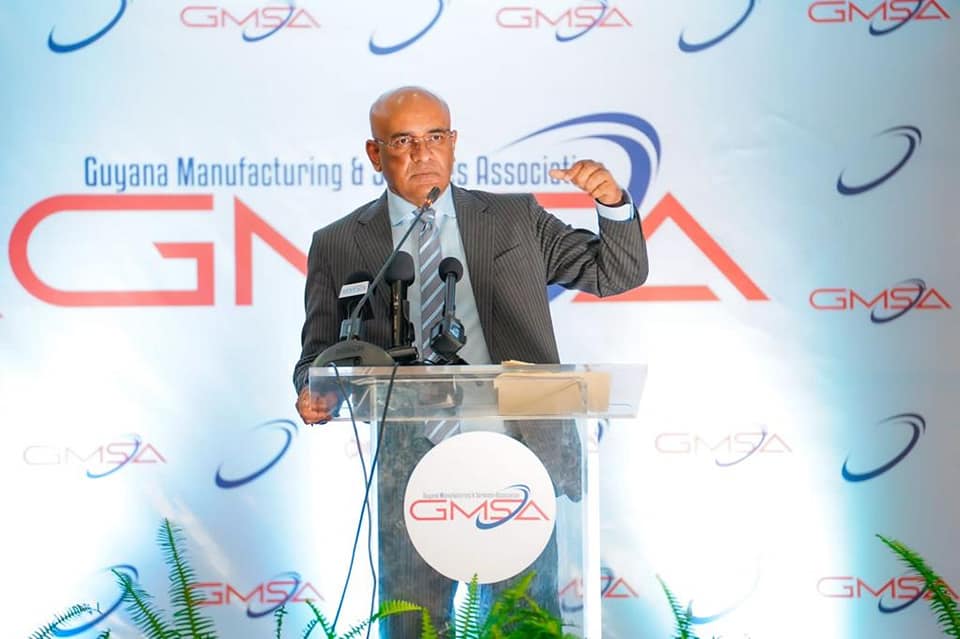The billions of barrels of oil and gas contained in the offshore Guyana basin belongs to the people, including the country’s private sector. In this regard, Guyana’s Vice President, Dr. Bharrat Jagdeo, is calling on the business community to take up a lead role in pushing back against the narrative of the “naysayers and anti-oil advocates” as the country seeks to balance the rapid development of its hydrocarbon resources with its environmental goals.
Guyana is already a carbon sink, with a forest the size of England which already stores 19.5 gigatonnes of carbon dioxide (CO2). But since the country is pursuing the swift development of its oil and gas resources in a world transitioning to cleaner energy; this has attracted the attention of anti-oil advocates.
In his address to the Guyana Manufacturing and Services Association’s (GSMA) mid-year business dinner on Tuesday evening, the Vice President said the government has been leading the fight but “the biggest beneficiaries” of the oil need to pitch in.
“You have seen the groups of people calling to shut down [the oil and gas] industry here in Guyana because we are causing climate change… Somehow production of oil and gas in Guyana is causing climate change, when as you know, our emissions, when measured against global emissions, are so miniscule that is negligible,” the Vice President outlined.
The world needs Guyana’s low carbon intensity oil developments, Hess tells investors | OilNOW
He said collaboration is needed with like-minded groups against those who do not support countries like Guyana pursuing a robust development agenda by tapping into their natural resources.
“People think this is a fight that the government needs to wage all the time but there needs to be a partnership against people who do not balance the notion that countries like ours have to grow [from oil resources] but also be environmentally responsible. So, I am looking forward to that partnership,” Dr. Jagdeo urged.
The government’s climate strategy is outlined in its revised Low Carbon Development Strategy (LCDS) 2030, which sees involvement from all levels of society in its national sustainability plan, even oil companies. Operator of Guyana’s Stabroek Block, ExxonMobil is set to pitch in with a study on how they can contribute to realising the country’s climate goals.
And by 2035, having at least two-thirds of the energy sector powered by renewables has been envisioned. Guyana’s planned energy mix will source power from natural gas, hydro, solar, wind and biomass.




